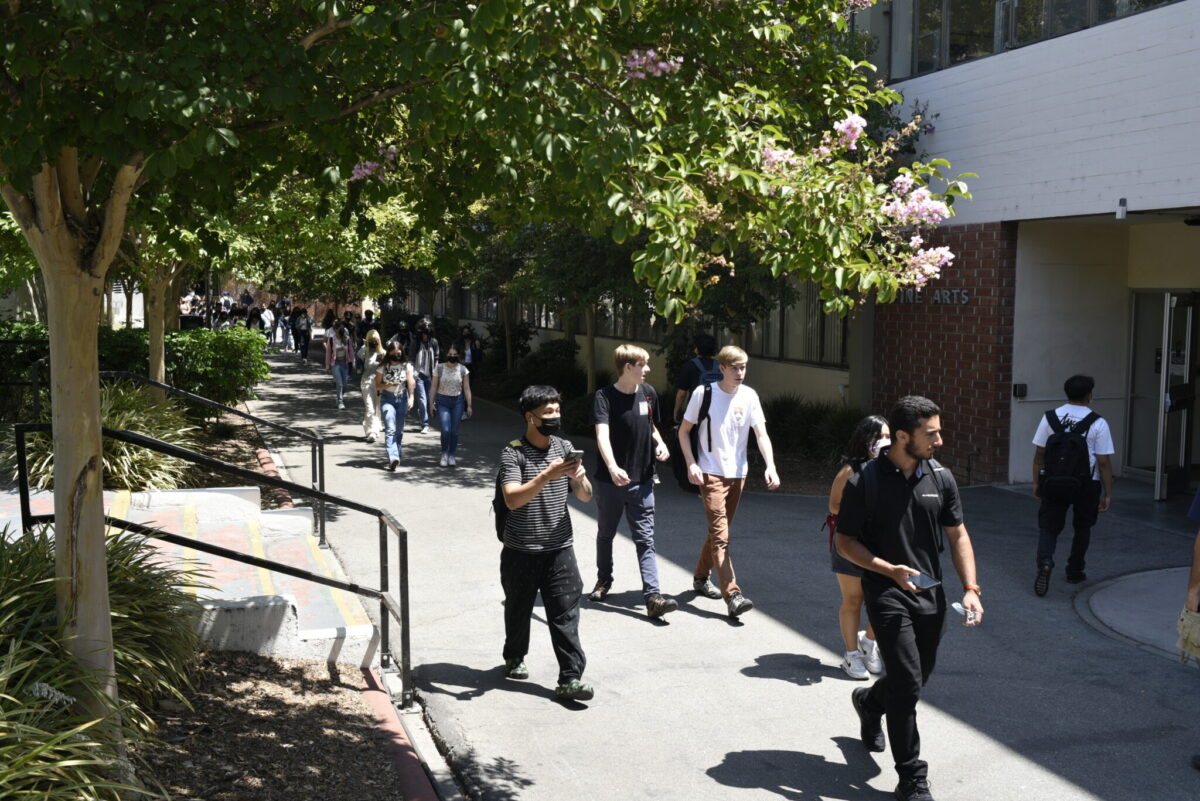This story was originally published by EdSource. Sign up for their daily newsletter.
Some California State University faculty members say they are worried about employee privacy protections and academic free speech after learning that the Trump administration is investigating alleged antisemitism across the 22-campus system.
CSU Chancellor Mildred García late last week alerted university employees that the federal Equal Employment Opportunity Commission (EEOC) had opened an investigation into the CSU and “has begun direct outreach to some faculty and staff members across the system to review allegations of antisemitism and to speak with them about their experiences on campus.”
The chancellor’s email came a day after a California State University, Los Angeles administrator separately notified faculty and staff that the EEOC had issued a subpoena requiring that campus to “produce personal phone numbers and email addresses for all employees.” The email, circulated on social media by a faculty group, followed a previous notification in August alerting employees that the university had provided the EEOC with “publicly available university contact information” in response to an EEOC request.
Anthony Ratcliff, a faculty member at Cal State LA who serves on the California Faculty Association (CFA) Los Angeles chapter executive board, told EdSource that federal scrutiny of the campus this school year is already having a “chilling effect” on how faculty teach, as professors worry that a student recording of a lecture could be used against them.
“It’s making a lot of faculty second guess what they’re talking about and how they actually can even have any academic freedom on campus,” he said.
The actions targeting CSU suggest a widening of the Trump administration’s investigations into alleged antisemitism on public university campuses in California. The EEOC is coordinating with the U.S. Department of Justice as part of an investigation alleging “an antisemitic hostile work environment” at the University of California. UC has complied with a federal subpoena seeking the personal information of about 900 faculty members.
CFA, which represents around 29,000 professors and employees across CSU, is calling on Cal State LA to take a different approach.
“This subpoena raises serious concerns about our members’ privacy,” Margarita Berta-Ávila, the president of the California Faculty Association, said in a statement on social media. “Our members are demanding a copy of the subpoena and asking that CSULA not comply with the subpoena until we have had a chance to review it and formulate a response.”
Cal State LA was among the universities in California where protesters in the spring 2024 established pro-Palestinian encampments during a groundswell of campus activism against Israel’s war in Gaza following Hamas militants’ Oct. 7 attack on Israel.
Cal State LA told faculty and staff last week that the investigation had been initiated based on one or more employee complaints and that the request for personal information extends to current and former employees since 2023. It said Cal State LA “is committed to handling your information responsibly and will only release what is specifically required by the EEOC.”
“At this early stage, we have not been informed of any conclusions, federal actions, or funding restrictions related to this investigation,” a FAQ document shared with Cal State LA employees reads in part. “The campus is responding to the investigation and, pending any conclusions or actions, will determine the appropriate next steps.”
At Cal Poly Humboldt, another site of major pro-Palestinian protests in spring 2024, lecturer Ryder Dschida said in an interview that the Cal State LA subpoena was “pretty shocking and alarming.”
“This is meant to kill speech, not only on Cal State LA’s campus, but also throughout higher education in California,” said Dschida, who is president of the school’s CFA chapter.
García’s email, first reported by the Los Angeles Times, also informed employees that the U.S. Department of Education’s Office for Civil Rights (OCR) is investigating allegations of racial discrimination at CSU because of its contact with the PhD Project, a private nonprofit that helps expand diversity among students pursuing business degrees. Dozens of colleges are already the subject of federal inquiries into their ties to the nonprofit.
“The CSU is – and has always been – committed to operating within all applicable state and federal law, and we will cooperate fully with both federal actions,” García wrote in her email to employees. “Similarly, the CSU is – and always has been – committed to maintaining a welcoming and non-discriminatory living, learning and working environment for all students, faculty and staff, as well as our campus guests.”
García added that the university system “will continue to advance the CSU’s mission through these and any challenges we face, just as we have throughout our 64-year history.”
CSU spokesperson Jason Maymon said in a statement regarding the EEOC probe that the CSU “unequivocally condemns antisemitism and continues to comply with longstanding federal and state anti-discrimination laws as well as CSU policies.”
Regarding the OCR claim, Maymon said the CSU shared faculty job postings on the PhD Project’s job board through 2014, but that “no student or applicant for CSU employment was given any preferential treatment based on race, national origin or any other protected characteristic.”

